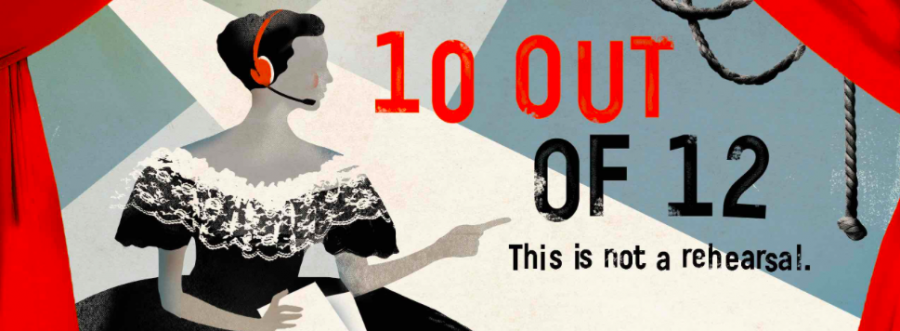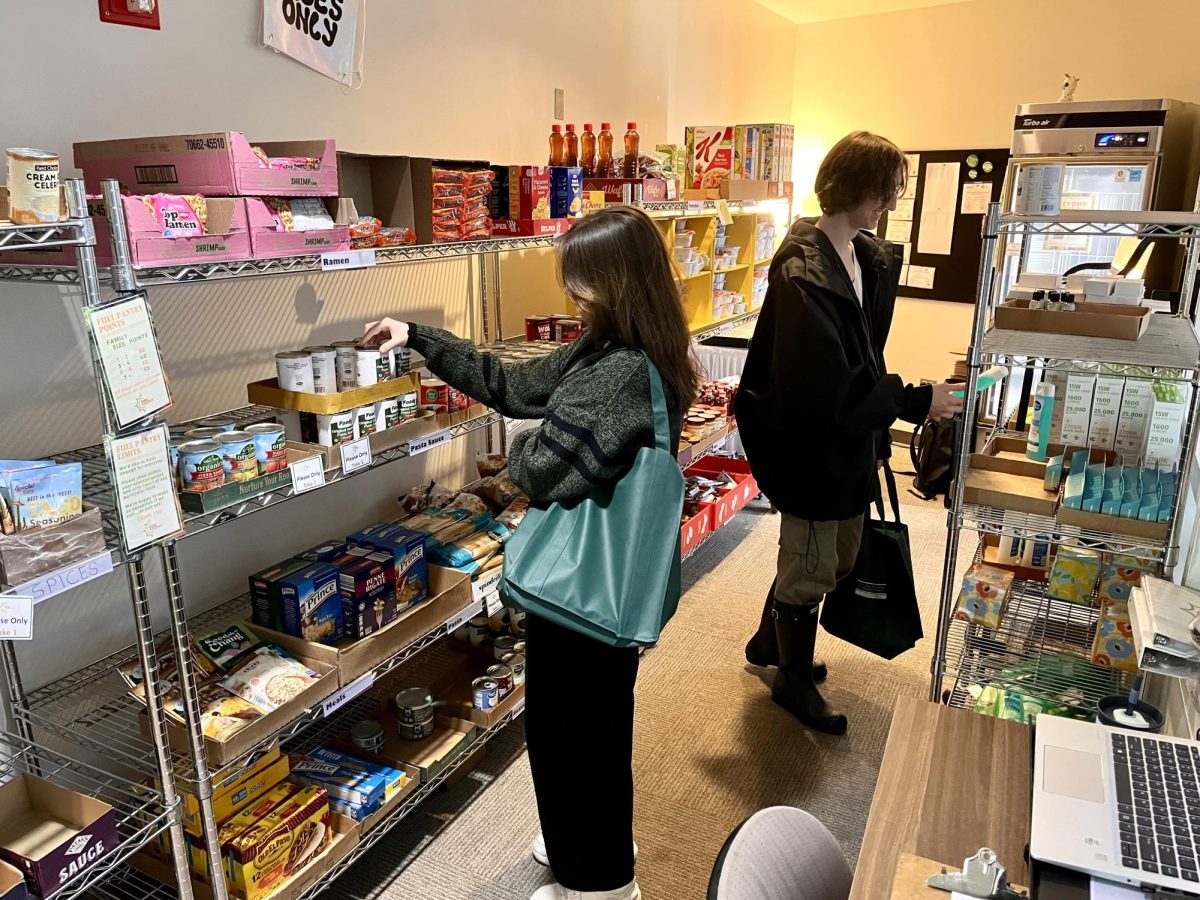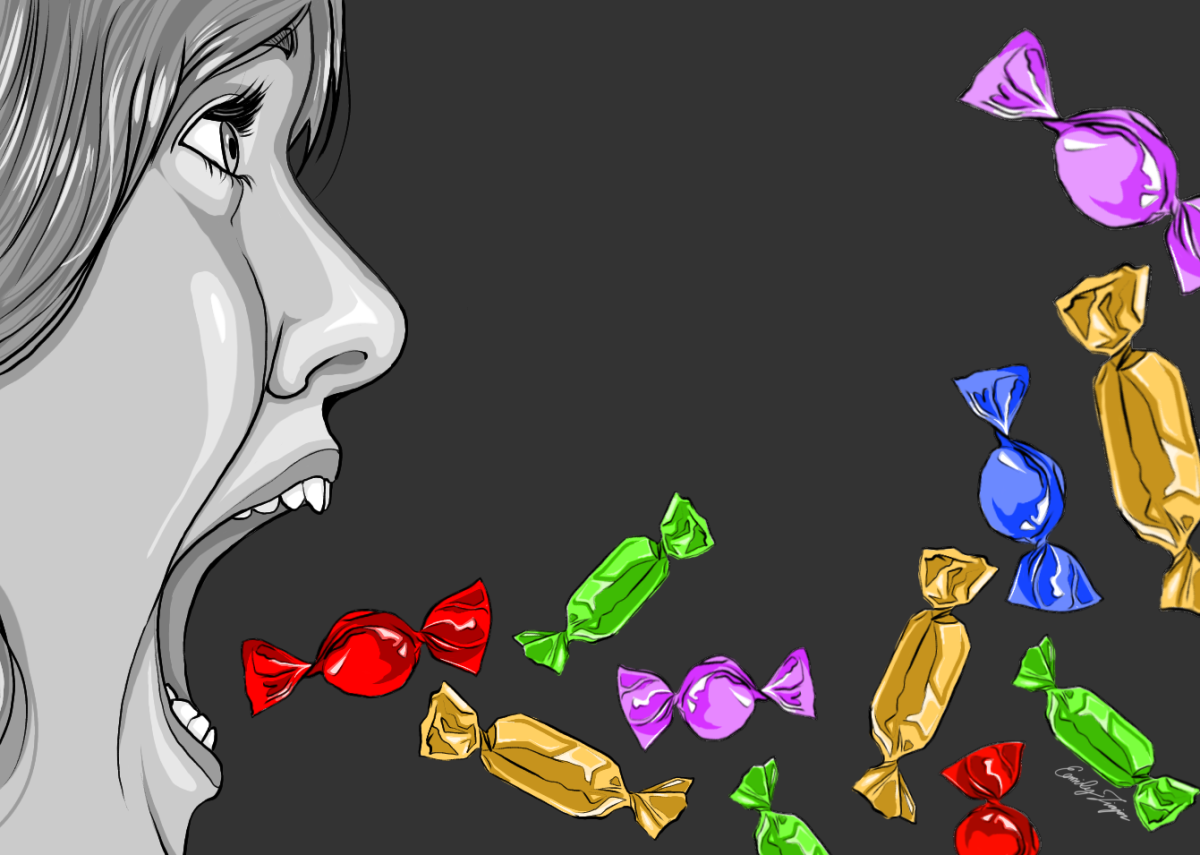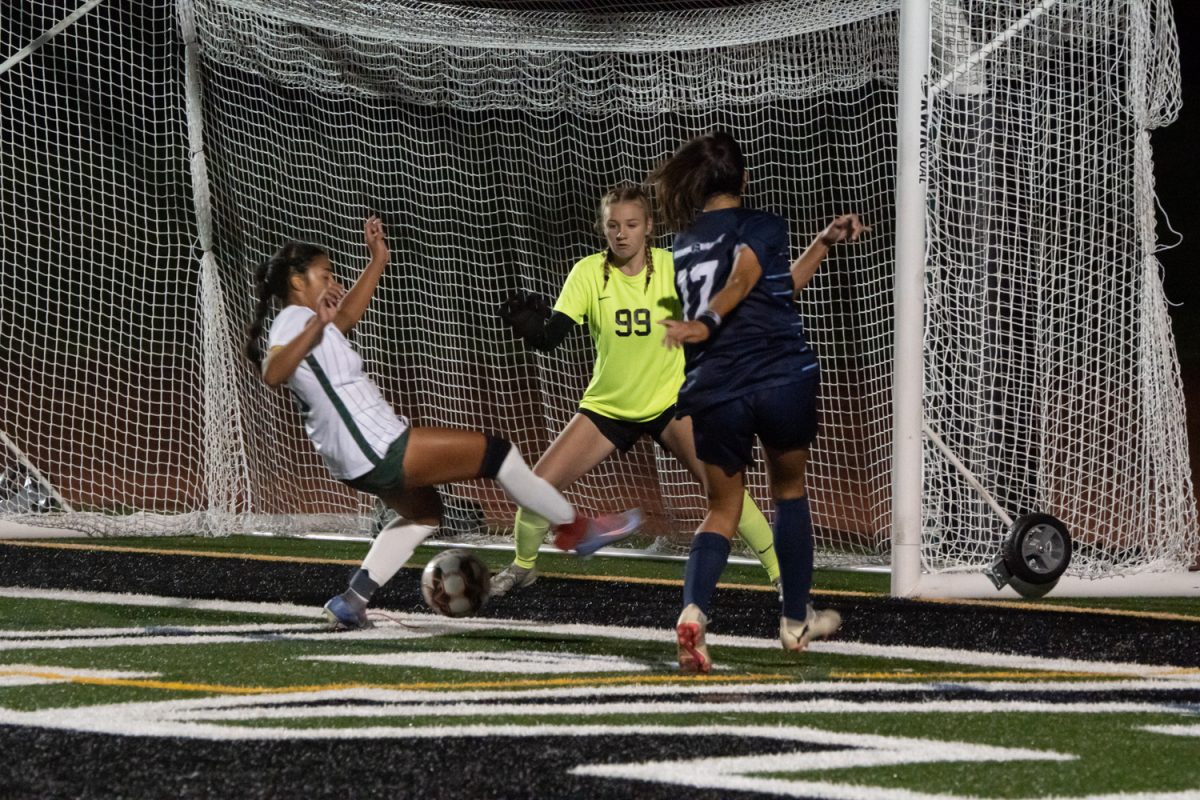Theater Wit’s “10 out of 12” promising performance ends with confusion, slight anger and great disappointment
April 26, 2017
When I heard there was a play written about the first tech rehearsal of a show where the audience members are given headsets to listen to the hysteria from the techies, I thought I was in heaven.
As a theater lover and avid performer, maybe my hopes were too high. Once I left the theater even just for intermission, I heavily debated on walking back in. I noted some empty chairs after those 15 minutes, several people a few rows down had the same idea I did, but they were the strong and the brave.
I attended Theater Wit’s production of Anne Washburn’s “10 out of 12” with beaming excitement. The title “10 out of 12” refers to the Actors’ Equity Association’s policy that all equity actors must be given a 2-hour break in a 12-hour block of time. This show was meant to represent those 10 hours dedicated to tech.
A rehearsal continuing on for half a day is quite common for a first day of tech rehearsal. For non-thespians: 1. I’ll pray for you to find the light of Thespis, and 2. Tech is the week before the opening of a show where actors and tech members run through the entire play using lights and sound for the first time.
When in high school, each tech week was referred to as “hell week,” a name not so heard of anymore but contains the same truth to it. Any actor or techie will instinctively groan and/or sweat at any mention to the name.
This is why when I walked in to Theatre 2 at the Wit, I was excited to see a pair of headphones over each seat. As instructed, I placed them on and left only one ear covered so that I could hear what was happening onstage and off.
For pre-show, the actors portraying tech members swept the stage, fixed lights and ran around in last minute preparations. This was the perfect choice. It truly was the first step into making the audience believe they were at a real rehearsal. Actors wore all black if they were working backstage, and the stage manager looked disheveled yet put-together in an odd way. Costuming truly helped to elaborate on characters where the rest of the show lacked.
This brings me to actual dialogue and characterization. For the entire TWO AND A HALF HOUR run, I was confused, a little uninterested, disconnected and sweating profusely.
For the characters, there appeared to be two tech members, a stage manager, assistant and director. Stage manager and director portrayed their characters beautifully. As previously mentioned, their costuming was an extension of themselves with the stage manager wearing a messy bun, oversized superhero shirt and big parachute pants. She was a serious, focused, hardworking-yet-casual character who really brought some flavor into the show when she did have lines. For the director, he was more of a “free spirited” and creative character. He sported a faux hawk, tight v-neck shirt and jeans. The actor’s tattoos were visible as well. This even added to the character.
The set design was a plus as well. You didn’t quite know what was happening in the play that the tech was happening for, but the jungle-like mystical set really intrigued me and made you think how it connected to the piece.
For the others, techies were great. Specifically, the male tech member brought me to laughter even when I was questioning whether or not to stay. He was sassy, weird, and his love for randomly found shrimp chips was something so off that it was hilarious. His voice along with the other crew members were what we could hear over the headset. This bit made any of the strange commenting on his chips or his salami and swiss cheese sandwich even more entertaining.
The actor characters were the biggest issue. I couldn’t tell if it was Washburn’s writing of the show or the actors themselves who made me not care for the show one bit. There was zero characterization, only attempts to it. This was most obvious with Eva and Paul. We learn as we watch these actors in between scenes that Eva, the stereotypical cutie blonde, was banging another actor in the show, another cliché douche narcissistic famous actor man. Oh no! Bad news when this brings up one fit of drama with another actor, Paul. Too bad that this “drama” that ensues between Eva and Paul, resulting in Paul breaking character and shouting, was just confusing.
Paul’s character was only seen prior to this conflict backstage attempting to get himself into character. As an audience member, I thought he was one of those weird actors with “off” ways of attacking his character since he talked himself into character. When he blew up, I barely understood him due to his unknown dialect, and what he said connected to nothing happening. It was too spontaneous with no build-up whatsoever. It could have worked if we knew anything about these characters as actors, if they had development, but it simply fell short.
Maybe it wasn’t the actor’s fault. Maybe it was the writing. It could have been because this “drama,” which was the first spark of anything emotional or connectable or attention grabbing, happened after maybe an hour or more of sitting and watching the tech members start and stop and actors mime conversations and wait until told to proceed. A real tech rehearsal is best run professionally. This means you stop when tech tells you to and continue when they tell you. It can be long and grueling, we know this, but this is not what the audience wants to sit and watch for an hour. It’s boring. That’s why actors hate doing it. Don’t make an audience sit through and hate it, too.
The writing left no room for character development either besides the stage manager, director, assistant and tech. It was written to be ran as a tech, not giving actors many lines until the end of the first half and bits in the second half. I can cut them some slack here, but what wasn’t written in could have been easily made up for in various ways nonverbally on stage. Actors did goof with one another in between starts and stops, but it more so made me annoyed because as a professional actor, you must act professional, not as a child who tries to balance a tea cup on the back of her costar’s butt.
The actor’s were presented as cliché archetypal characters seen in the cheesiest performances. Eva was a cute petite blonde who had troubles with men. Paul was a looming, dark, older actor with years of experience over his costars. There was the vain, rude actor, some bald guy I didn’t care about who was actually the best actor, but it was such a shame because I had no idea who he was as a character. There was the assistant who came out sporting rolled up jeans with socks showing and sneakers, suspenders, a button up, pants to his chin and nerdy glasses. His voice was even nasally. It was an attempt at cheap laughs that I don’t think a more serious director would choose. It came off as bad, immature taste.
The ending was the real icing on the cake. After watching bits of a show I didn’t get at all and crossing my fingers I could exit the tightly packed theater that was causing me to undress and sweat everywhere, it all ended with a song and dance. “Uh, what…?” Was the only thing going through my mind as I watched these characters sing this sad song, spin each other around and lift chairs around. I guess when you’re a playwright and you realize there’s no message or theme to your show, you’ve got to throw in a quick, but admittingly beautiful, song that literally tells your audience your message. It reflected actors and their work ethic. You go work your temp job for 12 hours, yet every night you go to the theater to rehearse and perform and put on a beautiful masterpiece of raw human life, and you drag yourself out covered in dust and sweat, and you crawl into bed to do it all again the next day. Actors don’t do it for money. They do it for the sake of the art and its incredible, unparalleled beauty. I just wish the show represented this more than just saying it at the end of it all.




















